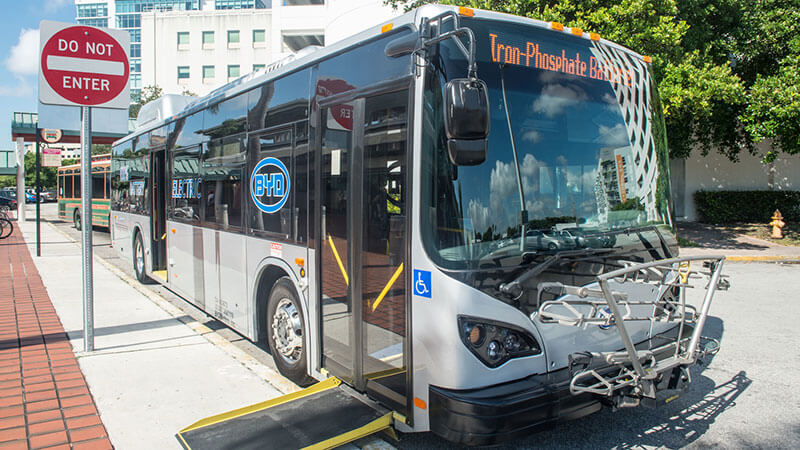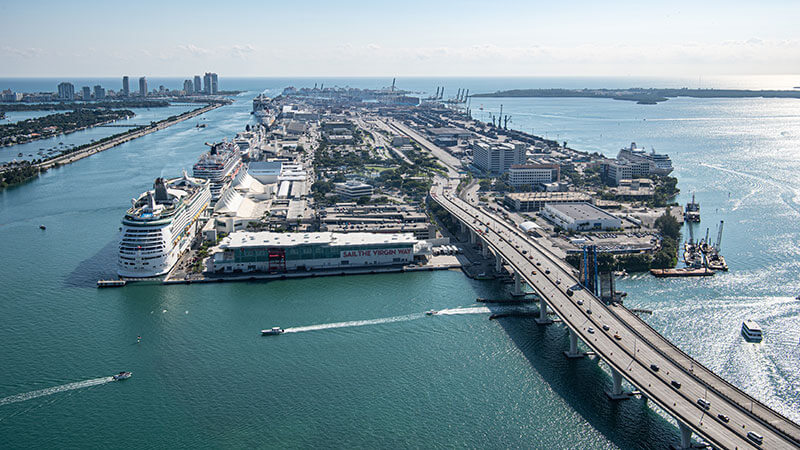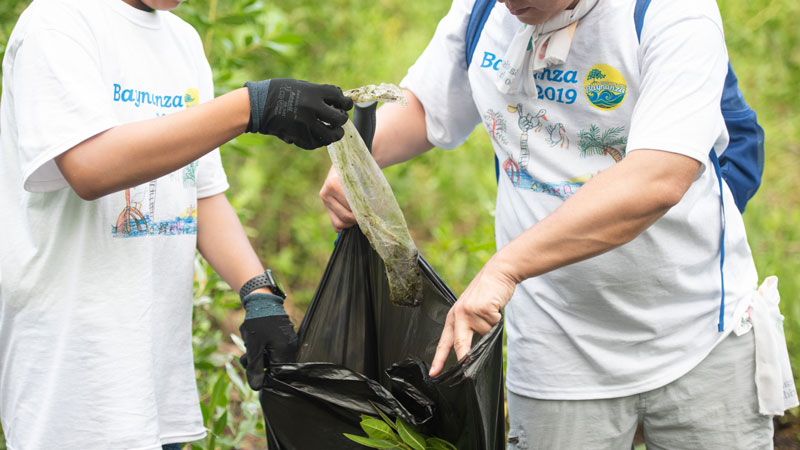Land Use & Transportation
Approach 4: Reduce transportation-related fuel consumption
Reducing transportation-related fuel consumption will have the largest single impact on climate pollution in Miami-Dade County and requires multiple strategies, including reducing vehicle and mobile equipment usage, expanding effective low-carbon mobility options, accelerating the electrification of vehicles and equipment, prioritizing those powered by renewable energy, and cutting emissions from Miami-Dade’s seaport, airports, and other commercial hubs. All of these emissions reducing approaches provide multiple long-term economic, health, and climate benefits.
Approach 5: Expand and protect green and blue spaces
Land use programs and policies in Miami-Dade County that maintain healthy natural resources help address the negative impacts of climate change. Miami-Dade’s land and marine ecosystems absorb and store carbon dioxide and other types of pollution. Coastal habitats absorb carbon at a rate 10 times greater than mature terrestrial tropical forests. They also store three to five times more carbon per equivalent area than tropical forests. While agriculture does not maintain ecosystems in their natural state, regenerative agricultural practices can be utilized to enhance carbon storage in the soil, and expanding the tree canopy increases shade and cooling, which reduces urban heat.
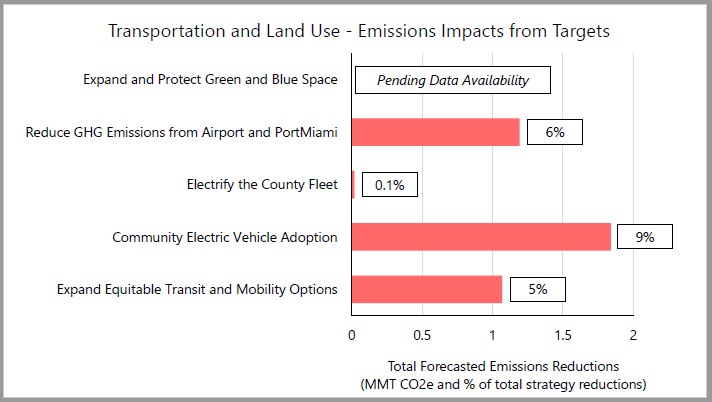
Contact Us
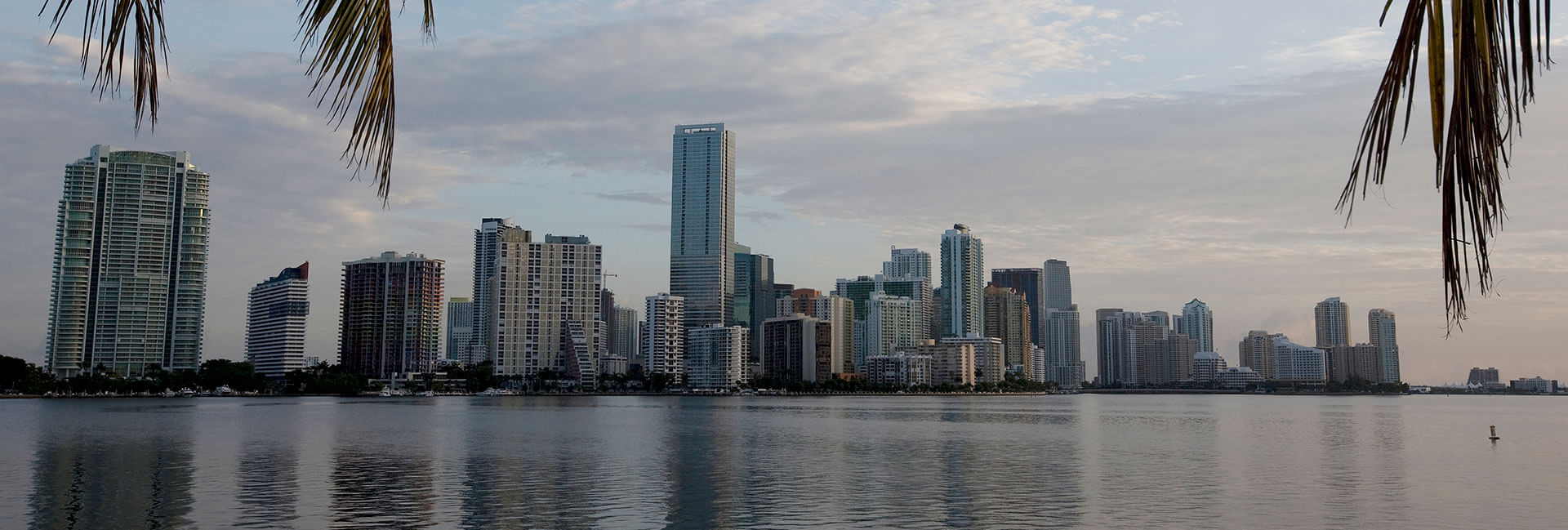
Office of Resilience
James F. Murley
Stephen P. Clark Center
111 NW 1st Street,
12th Floor
Miami, FL 33128
305-375-5593 | [email protected]

